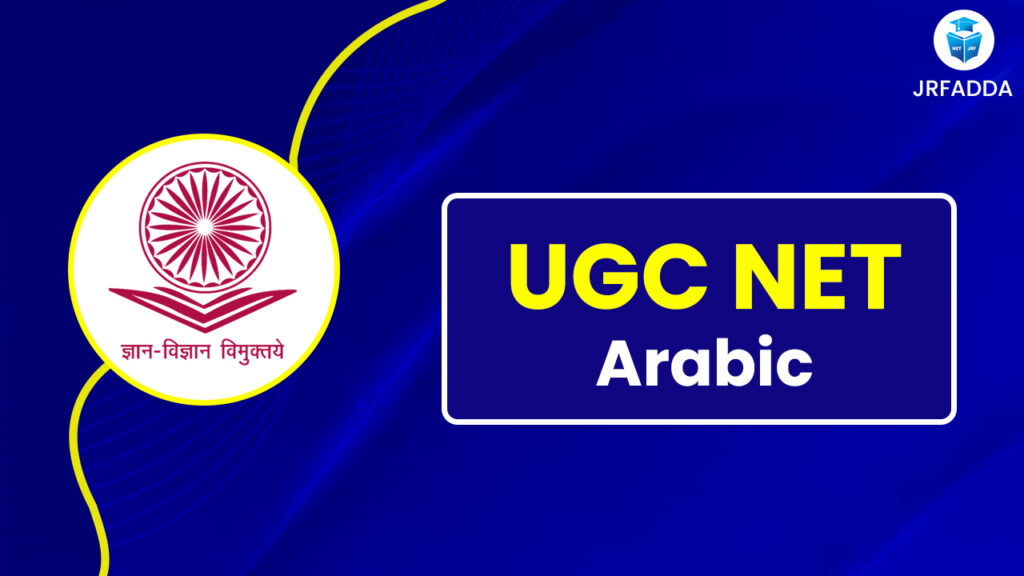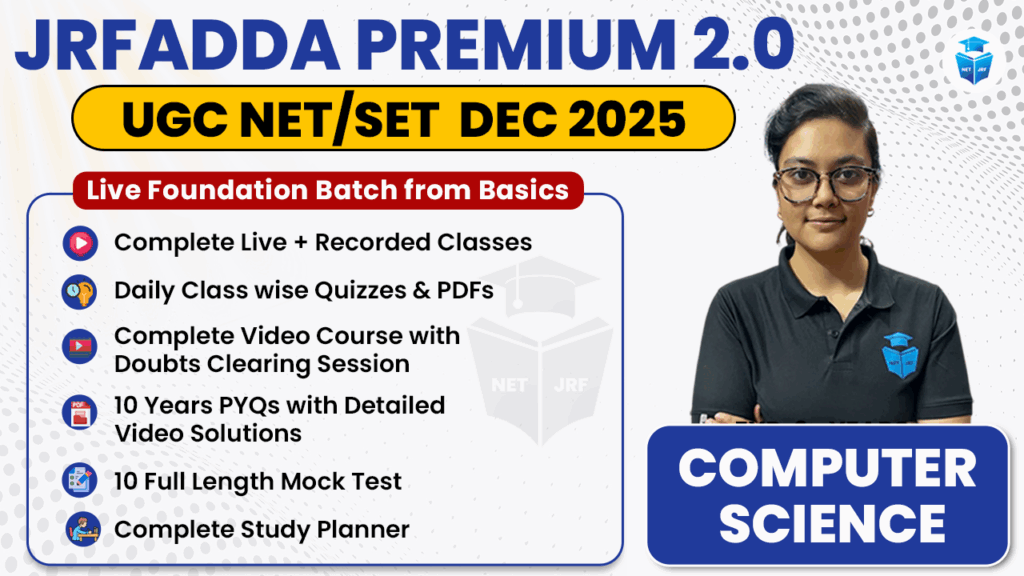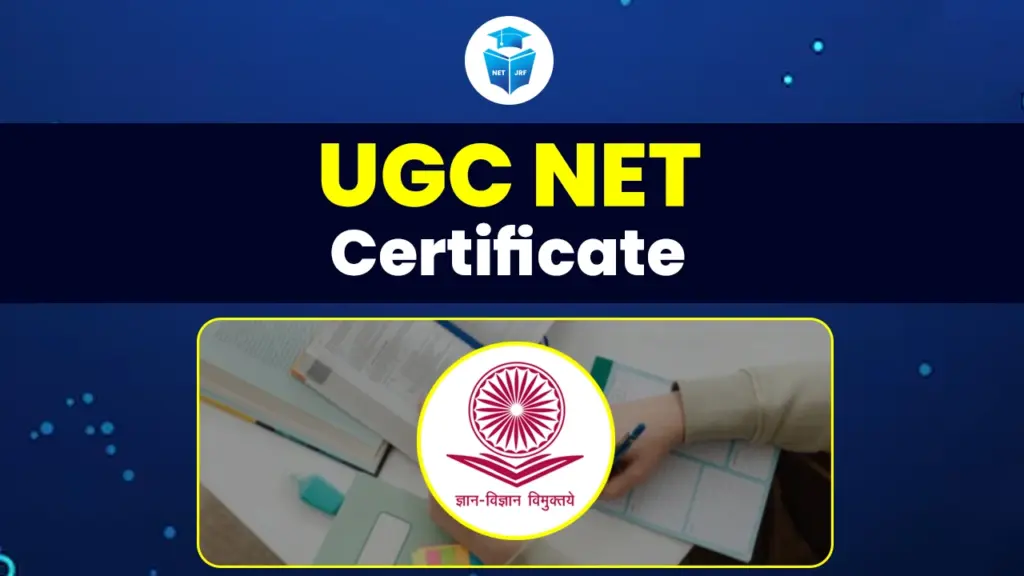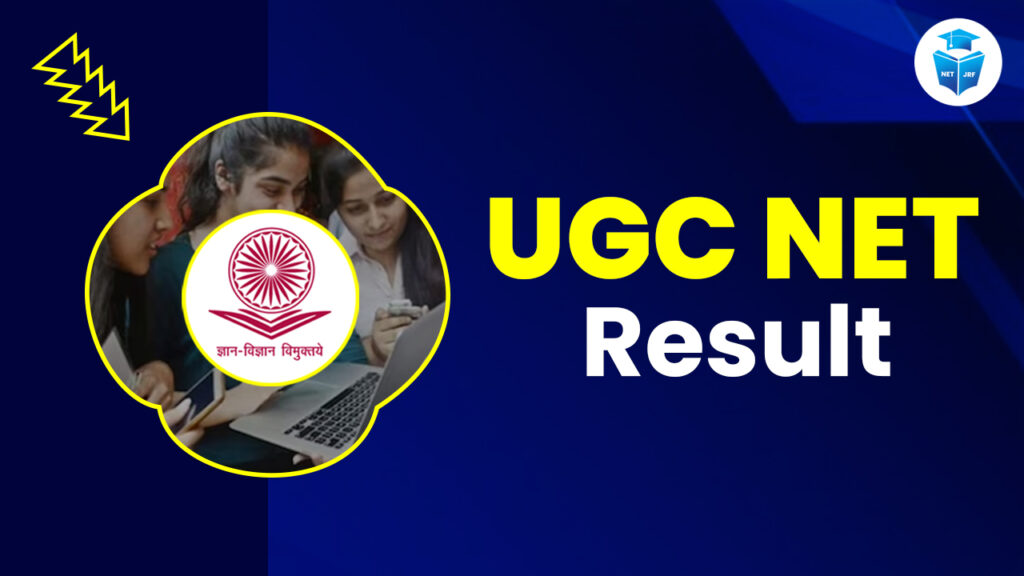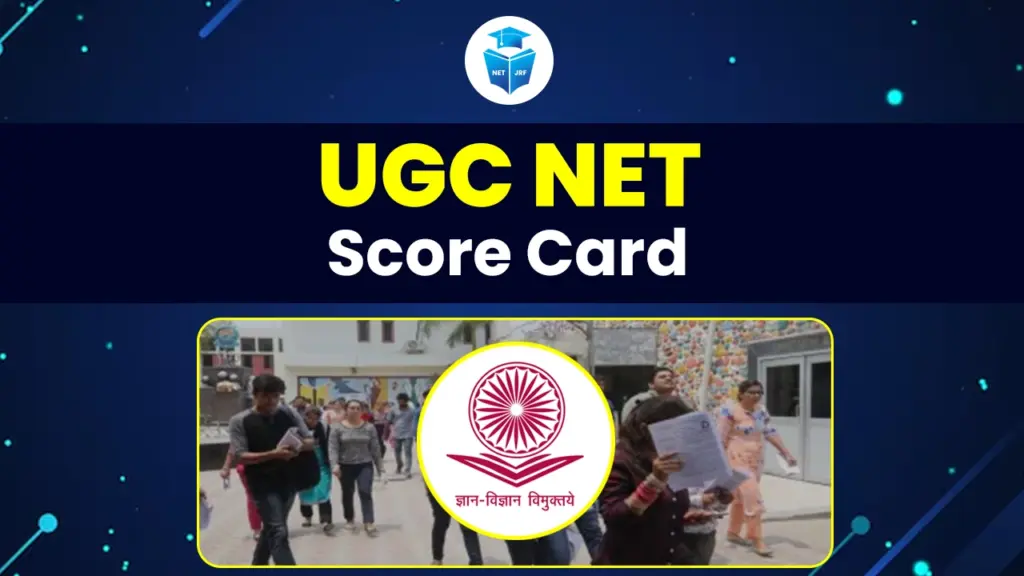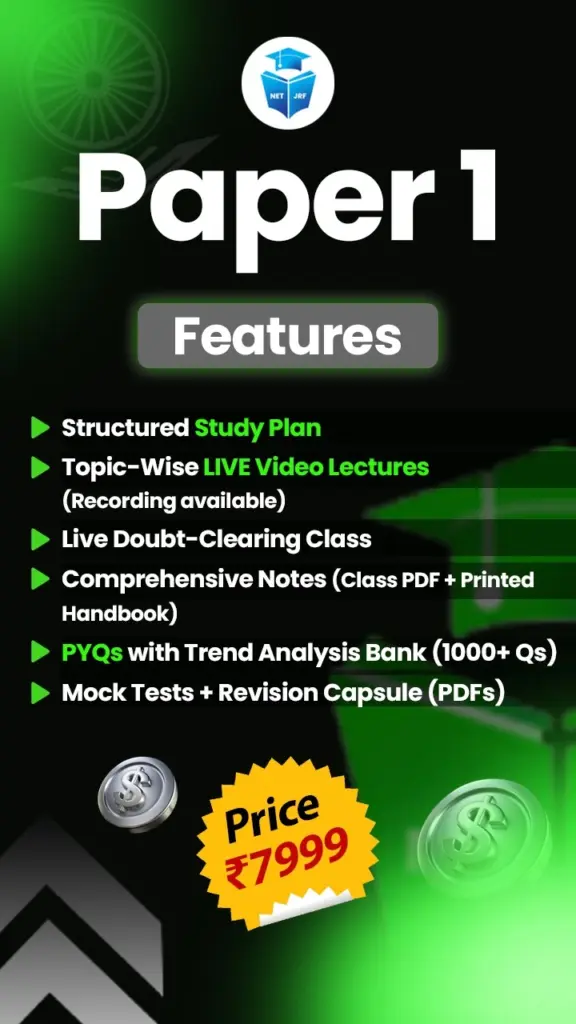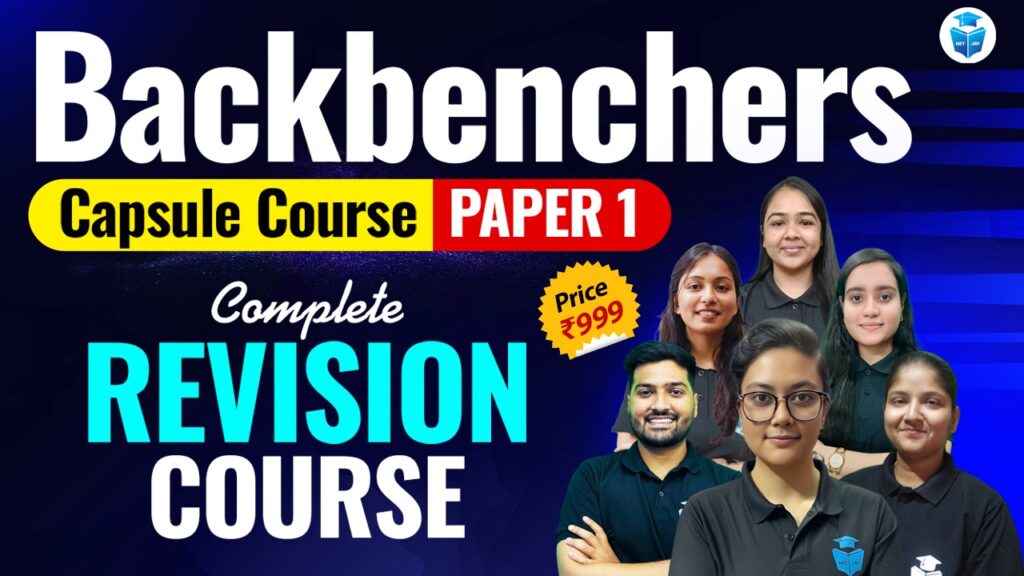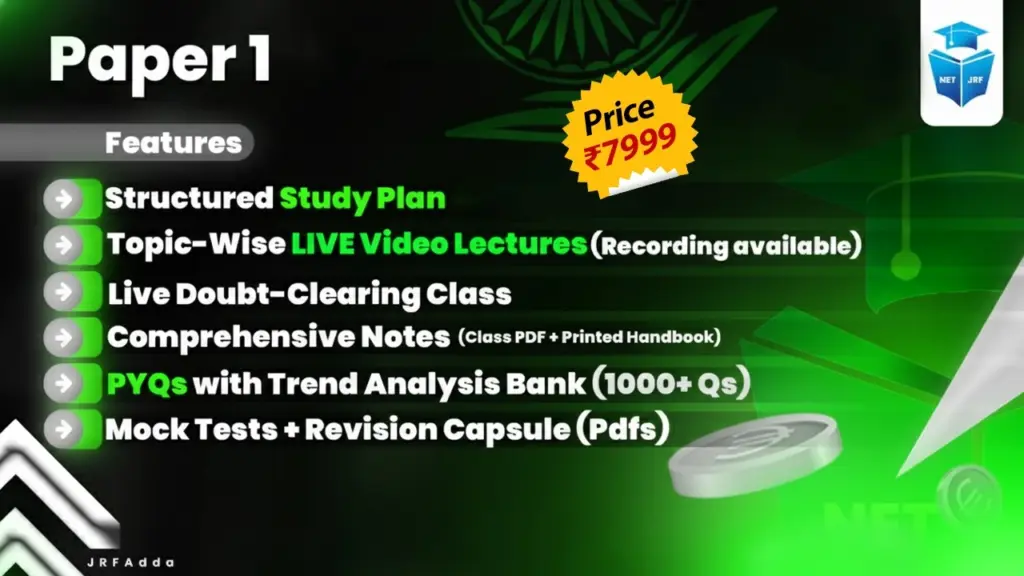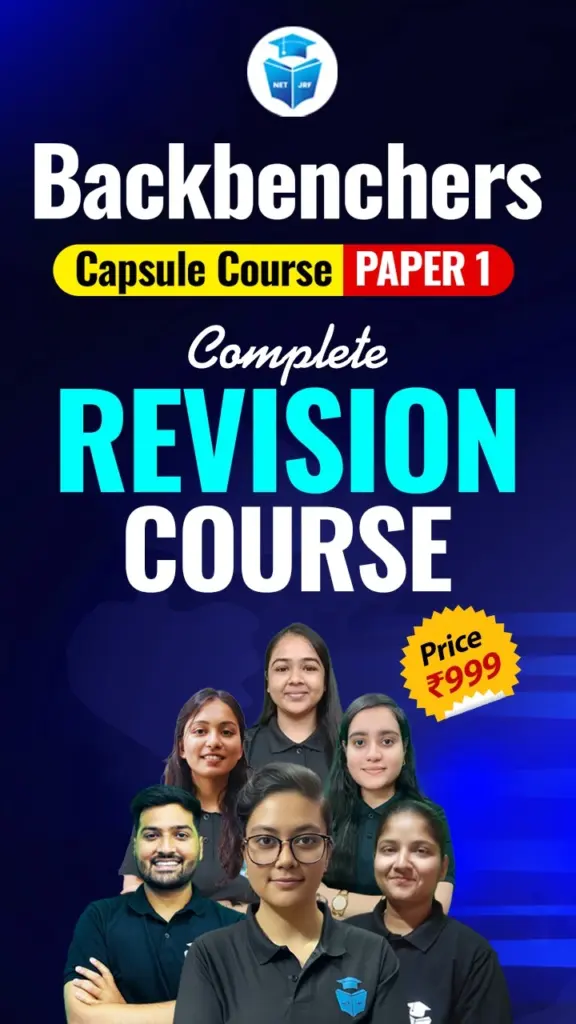UGC NET Arabic Exam 2025, conducted by the National Testing Agency (NTA), is a national-level examination successfully completed on 2 January 2026 in first shift for candidates aspiring to become Assistant Professors or to receive the Junior Research Fellowship (JRF) in Arabic language and literature. This exam is vital for individuals seeking a career in academia or research in Arabic studies.
Also Read: UGC NET Question Papers 2025
UGC NET Arabic 2025 Exam Analysis
The UGC NET Arabic 2025 exam, conducted on 2 January 2026 in first shift, was generally rated as moderate to difficult by many candidates.
Paper 1, common to all subjects, was considered easy to moderate, with questions on teaching and research aptitude, logical reasoning, data interpretation, ICT, environment, and higher education. Most candidates were able to attempt around 38–42 questions confidently.
Paper 2 (Arabic) tested both language skills and literary knowledge. Questions covered classical and modern Arabic literature, grammar, prose and poetry comprehension, rhetoric, translation techniques, history of Arabic language, and contributions of prominent writers and poets. Some sections required detailed understanding of literary criticism and cultural contexts, while others focused on linguistic analysis and interpretation of texts. Candidates noted that questions on classical poetry and complex grammatical structures were among the more challenging parts of the paper.
Also Read: UGC NET Exam Analysis December 2025
UGC NET Arabic Exam 2025 Overview
The UGC NET Arabic Exam 2025 is a national-level eligibility test conducted by the National Testing Agency (NTA) on behalf of UGC. The UGC NET exam 2025 determines the eligibility of candidates for the roles of Assistant Professor and for the award of Junior Research Fellowship (JRF) in Arabic language and literature.
| Feature | Details |
| Exam Name | UGC NET Arabic 2025 |
| Conducting Authority | National Testing Agency (NTA) |
| Posts | Assistant Professor & JRF |
| Exam Level | National |
| Exam Date | 2 January 2026 in 1st Shift |
| Exam Mode | Online (Computer-Based Test) |
| Exam Duration | 3 Hours (180 Minutes) |
| Official Website | ugcnet.nta.nic.in |
What is UGC NET Arabic 2025?
The UGC NET Arabic 2025 is a national-level eligibility test conducted by the National Testing Agency (NTA) on behalf of the University Grants Commission (UGC). It determines the eligibility of candidates for Assistant Professor roles and the award of Junior Research Fellowship (JRF) in the subject of Arabic language and literature in Indian universities and colleges.
UGC NET Arabic 2026 Eligibility Criteria
UGC NET Arabic 2026 Eligibility Criteria the candidates must hold a Master’s degree in Arabic or a related discipline from a UGC-recognized university. The minimum required marks are 55% for General and 50%OBC/SC/ST/PwD/Transgender categories.
Educational Qualification
- Must have a Master’s degree in Arabic or a related field (e.g., Arabic Literature, Linguistics, Comparative Literature) from a UGC-recognized university.
- General Category: Minimum 55% aggregate
- OBC/SC/ST/PwD/Transgender: Minimum 50% aggregate
Age Limit
- JRF: Maximum 30 years (Relaxation for reserved categories)
- Assistant Professor: No upper age limit
Nationality
- Must be an Indian citizen.
Also Read: UGC NET Eligibility Criteria 2026
UGC NET Arabic 2026 Syllabus PDF Download
You can download the official UGC NET Arabic 2025 syllabus PDF from the University Grants Commission’s official website.
- Visit the official UGC NET syllabus webpage.
- Locate Subject Code 29: Arabic.
This official syllabus contains the complete topics for both Paper 1 (General Teaching & Research Aptitude) and Paper 2 (Subject-Specific Arabic), helping candidates prepare thoroughly for the exam.
| UGC NET Arabic 2026 Syllabus PDF Link | |
|---|---|
| UGC NET Arabic 2026 Syllabus PDF | click here |
UGC NET Arabic 2026 Syllabus
The UGC NET Arabic 2025 syllabus exam tests candidates on their teaching aptitude, research capability, and in-depth knowledge of the Arabic language and literature. It is divided into two papers.
Paper 1 Teaching Aptitude
Focuses on the nature and objectives of teaching, teaching methods, learner characteristics, and classroom behavior. It also includes evaluation systems and the role of teachers in society.
Research Aptitude
Covers research types, methods, ethics, steps involved in research, and basic concepts related to research papers, theses, and data interpretation.
Reading Comprehension
Tests the ability to understand, interpret, and analyze written content. A passage is given, followed by questions to check comprehension skills.
Communication
Deals with the types and characteristics of communication, barriers to effective communication, and techniques to improve classroom and academic communication.
Reasoning (Including Mathematical)
Includes number series, letter series, codes, and puzzles. Also tests the candidate’s ability in solving basic mathematical problems.
Logical Reasoning
Focuses on understanding arguments, analogies, logical deduction, Indian logic, and the use of Venn diagrams.
Information and Communication Technology (ICT)
Covers basic computer knowledge, digital communication, Internet, email, ICT in education, and e-learning tools.
Higher Education System
Explores the development, governance, and policies of higher education in India, including institutions like UGC, NAAC, and AICTE.
Paper 2: Subject-Specific – Arabic
This paper evaluates a candidate’s expertise in Arabic language, literature, grammar, and related fields. The key areas include:
Arabic Literature: Pre-Islamic, Classical, and Modern
- Pre-Islamic (Jahili): Study of early Arabic poetry and prose, key poets, themes like valor and tribal pride.
- Classical: Umayyad and Abbasid literary periods including prose, poetry, and court literature.
- Modern: Arabic literature’s evolution post-19th century with themes of nationalism, reform, and literary movements.
Quranic Studies: Interpretation and Themes
- Study of the Qur’an’s linguistic, thematic, and stylistic elements.
- Key topics include exegesis (Tafsir), legal and moral instructions, and major Quranic commentators.
Arabic Linguistics and Grammar
- Historical development of Arabic grammar.
- Key linguistic concepts in Nahw (syntax) and Sarf (morphology).
- Modern linguistic applications in Arabic phonology, semantics, and syntax.
Islamic Jurisprudence (Fiqh)
- Fundamental sources of Islamic law (Qur’an, Sunnah, Ijma, Qiyas).
- Overview of major schools of jurisprudence.
- Legal terminology, Islamic rulings, and interpretations.
Rhetoric and Prosody
- Balaghah (rhetoric): Study of eloquence, metaphors, similes, and literary devices.
- Arudh (prosody): Structure and meters of Arabic poetry.
Arabic Calligraphy & Manuscript Studies
- Evolution of Arabic script styles (Kufic, Naskh, Diwani, etc.).
- Study of ancient manuscripts, preservation, cataloging, and textual criticism.
Sufism and Mystical Arabic Literature
- Key Sufi poets and thinkers such as Ibn Arabi, Al-Hallaj, and Rumi.
- Mystical themes in poetry: divine love, union with God, and spiritual longing.
Arabic Language Pedagogy
- Principles and techniques for teaching Arabic as a second/foreign language.
- Curriculum design, material development, and use of modern technology in teaching Arabic.
Translation Studies & Comparative Literature
- Translation theories and methods applied to Arabic texts.
- Challenges in translating cultural and literary content.
- Comparative analysis of Arabic and other world literatures.
Also Read: UGC NET Syllabus 2026 PDF Download
UGC NET Arabic 2025 Exam Pattern
The UGC NET Arabic 2025 Exam Pattern is into two papers: Paper I and Paper II. Paper I is designed to assess the candidate’s general teaching and research aptitude.
| Paper | Sections | No. of Questions | Marks | Duration |
| Paper I | Teaching & Research Aptitude | 50 | 100 | 1 Hour |
| Paper II | Arabic Subject | 100 | 200 | 2 Hours |
Also Read: UGC NET Exam Pattern 2026 For Paper 1 & 2
UGC NET Arabic Previous Year Question Papers
Practicing UGC NET Arabic previous year papers is one of the most effective strategies for exam preparation. These previous papers help candidates to gain into the exam pattern, types of questions, topic-wise weightage, and difficulty level. Regular practice with these papers also enhances time management skills and boosts confidence for the actual exam.
| Exam Name | Year | Download PDF |
| UGC NET Arabic (December) | 2025 | Available Soon |
| UGC NET Arabic (June) | 2025 | Download PDF |
| UGC NET Arabic | 2024 | Download PDF |
| UGC NET Arabic | 2023 | Download PDF |
| UGC NET Arabic | 2022 | Download PDF |
| UGC NET Arabic | 2021 | Download PDF |
| UGC NET Arabic | 2020 | Download PDF |
Also Read: UGC NET Previous Question Papers, Last 5 Years’ PDF
Conclusion
The UGC NET Arabic 2025 exam serves as a crucial gateway for aspiring candidates aiming to build a career in academia and research within the field of Arabic language and literature. With a comprehensive syllabus that covers both teaching aptitude and in-depth subject knowledge, this exam ensures that qualified individuals possess the necessary skills to contribute effectively as Assistant Professors or Junior Research Fellows.
UGC NET Arabic 2025 FAQs
What is the eligibility criteria for UGC NET Arabic 2025?
Candidates must have a Master’s degree in Arabic or a related subject from a UGC-recognized university with at least 55% marks for General category and 50% for reserved categories. The age limit for JRF is 30 years, while there is no upper age limit for Assistant Professor.
How can I download the official UGC NET Arabic 2025 syllabus PDF?
You can download the official syllabus PDF from the University Grants Commission’s official website under subject code 29 (Arabic). The syllabus covers both Paper 1 (Teaching & Research Aptitude) and Paper 2 (Arabic subject-specific topics).
What is the exam pattern of UGC NET Arabic 2025?
The exam consists of two papers: Paper 1 has 50 questions on teaching and research aptitude (100 marks, 1 hour), and Paper 2 has 100 questions on Arabic language and literature (200 marks, 2 hours). Both papers are conducted online.
Where can I find previous year question papers for UGC NET Arabic 2025 preparation?
Previous year papers for UGC NET Arabic from 2020 to 2024 are available online in PDF format. Practicing these papers helps understand exam trends, question types, and improves time management skills.
Is there any age relaxation available for reserved categories in UGC NET Arabic 2025?
Yes, age relaxation is provided as per government norms for OBC, SC, ST, PwD, and other reserved categories, specifically for the Junior Research Fellowship (JRF) post, which has a maximum age limit of 30 years.

